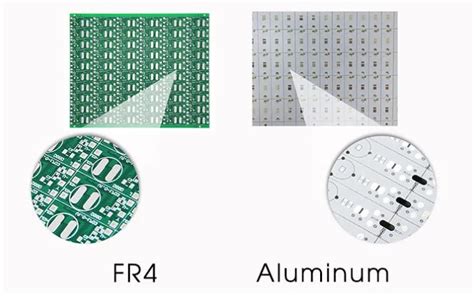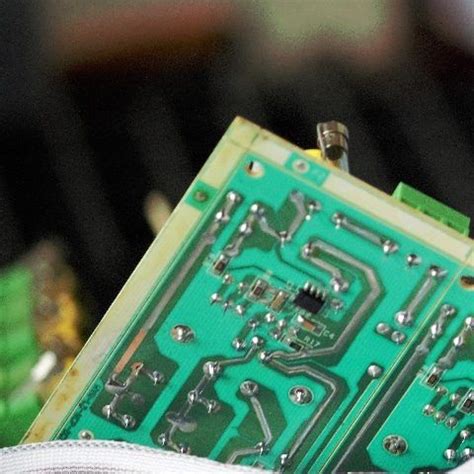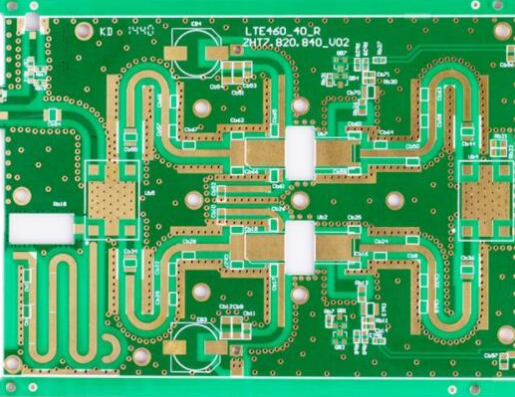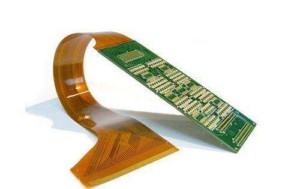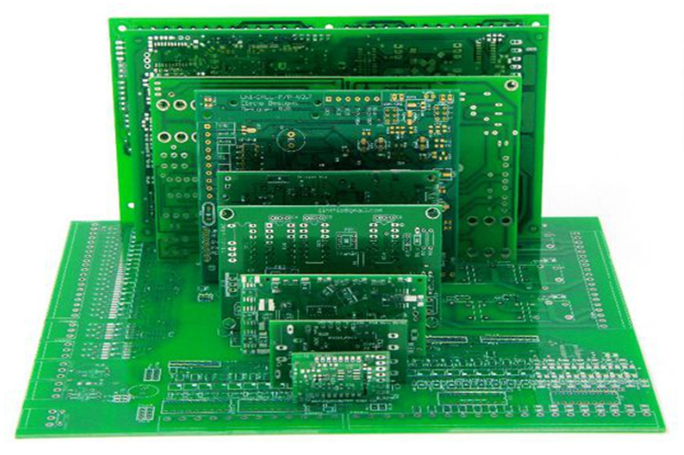Top Alumina PCB Manufacturer: Quality Meets Innovation
Key Takeaways
When considering a top alumina PCB manufacturer, it is essential to explore the intricacies of PCB manufacturing as this directly impacts both the quality and functionality of the products you may need. A reputable manufacturer stands out through their commitment to advanced techniques and high standards. Understanding the pcb manufacturing cost is crucial for making informed business decisions; it enables you to forecast your budget effectively while engaging with pcb manufacturing companies. Additionally, these pcb manufacturing businesses often showcase their prowess in various applications, demonstrating their capability in adapting the technology for specific needs, from consumer electronics to aerospace components. As you delve into this realm, keep an eye on how these manufacturers leverage innovations that enhance thermal management—an essential feature of alumina PCBs—ensuring optimal performance under varying conditions. The key takeaway is that quality does not simply emerge; it is a result of meticulous processes and innovative designs, which collectively contribute to superior thermal properties and reliability across diverse industries.
Introduction to Alumina PCB Technology
In the world of pcb manufacturing, alumina PCBs (Printed Circuit Boards) are gaining significant attention due to their superior properties. You may find that many pcb manufacturing companies are now focusing on this technology because of its exceptional performance in various applications. Alumina, a ceramic material, offers outstanding thermal management capabilities, making it ideal for high-power and high-frequency electronic devices. The pcb manufacturing cost associated with alumina-based PCBs can be higher than traditional FR-4 boards, but the benefits often outweigh these expenses in critical applications where reliability and efficiency are paramount.
Alumina PCB technology is characterized by its ability to withstand high temperatures and provide excellent electrical insulation. You will notice that leading manufacturers prioritize advanced production methods to create PCBs that not only meet industry standards but also incorporate innovative designs tailored for specific needs. Moreover, as markets continue to evolve, the importance of thermal management in devices is becoming increasingly vital. By using alumina materials in your pcb manufacturing business, you can enhance product longevity and performance while catering to the growing demands of industries such as aerospace, automotive, and telecommunications.
Here’s a brief comparison table highlighting some key advantages of alumina PCBs over traditional options:
| Feature | Alumina PCBs | Traditional PCBs |
|---|---|---|
| Thermal Conductivity | High | Moderate |
| Durability | Excellent | Variable |
| Cost | Higher | Lower |
| Applications | High-performance devices | General electronics |
As you delve deeper into alumina PCB technology, it becomes clear why it is a preferred choice for many advanced applications today. You can explore more about this exciting field and its manufacturers by visiting platforms like Andwin PCB.
Key Features of a Leading Alumina PCB Manufacturer
When evaluating the key features of a leading alumina PCB manufacturer, you should focus on several critical attributes that set them apart in the highly competitive field of pcb manufacturing. Firstly, a reputable manufacturer will have established a robust reputation through years of experience and a portfolio of successful collaborations with key players in various industries. This experience often translates into superior craftsmanship that enhances the overall reliability and performance of their products. Furthermore, advanced technologies and innovative techniques play an essential role in ensuring precision during production processes, which not only reduces the pcb manufacturing cost but also increases efficiency across the board.
Another pivotal aspect is their capability to optimize thermal management in alumina PCBs, thereby ensuring that the devices perform efficiently in high-temperature environments. This is especially vital in sectors such as automotive, aerospace, and telecommunications where electronic components are subjected to extreme conditions. Additionally, leading manufacturers often engage in rigorous testing protocols and quality assurance checks to guarantee that every board meets stringent industry standards.
Engagement with clients is also significant; top-tier manufacturers prioritize understanding your specific needs and applications to deliver tailored solutions. They also tend to offer comprehensive support in areas such as design assistance, which can be particularly valuable as you navigate pcb manufacturing businesses or look to scale your operations.
In summary, when you are considering which pcb manufacturing companies to partner with for alumina PCBs, prioritize those exhibiting a commitment to innovation, quality control, and customer-centric services—the cornerstones of successful PCB production.
Advanced Manufacturing Processes for Alumina PCBs
In today’s competitive landscape, effective pcb manufacturing is crucial for ensuring that your products stand out. A leading alumina PCB manufacturer utilizes advanced manufacturing processes that integrate state-of-the-art technology and engineering expertise. These processes enable the production of precise, reliable, and high-performance alumina PCBs. By leveraging innovative techniques such as laser cutting, automated assembly, and advanced layering methods, these manufacturers streamline operations while minimizing pcb manufacturing costs. Additionally, the focus on quality control within these processes ensures that every alumina PCB meets stringent industry standards, satisfying the demands of your specific applications. In a market where discerning customers expect nothing but the best from pcb manufacturing companies, adopting such advanced methods positions your business at the forefront of innovation and efficiency in the pcb manufacturing business landscape. As a result, you can trust that your alumina PCBs will deliver exceptional performance across diverse applications, providing reliable support for cutting-edge technology solutions.
Exceptional Thermal Management in Alumina PCBs
When it comes to alumina PCBs, exceptional thermal management is a crucial factor that sets pcb manufacturing companies apart. These circuit boards are highly regarded for their ability to conduct heat efficiently, making them ideal for applications that demand consistent performance under high temperatures. The advanced thermal conductivity of alumina material ensures that heat generated by electronic components can be effectively dissipated, thereby enhancing the reliability and longevity of your products. In industries such as automotive, aerospace, and electronics, where thermal stability is paramount, the choice of a quality pcb manufacturing business specializing in alumina PCBs can significantly influence the pcb manufacturing cost by reducing the need for additional cooling solutions.
“Investing in high-quality alumina PCBs means investing in reliability; your projects deserve nothing less.”
By prioritizing thermal management, you allow your designs to function optimally, minimizing failures and downtime. Choosing a manufacturer that emphasizes this capability ensures you receive not just products but solutions tailored to withstand harsh operational environments. Therefore, when evaluating potential partners in pcb manufacturing, consider how their expertise in thermal management can align with your needs for innovative and robust product designs.
Diverse Applications of Alumina PCBs Across Industries
Alumina PCBs have emerged as indispensable components in multiple sectors due to their unique characteristics. Industries including aerospace, automotive, and telecommunications leverage alumina PCB technology for its exceptional durability and performance under extreme conditions. In the aerospace sector, for instance, these circuit boards provide reliable functionality in high-temperature environments, making them ideal for critical applications like radar systems and satellite components. Similarly, in the automotive industry, alumina PCBs are recognized for their effectiveness in electric vehicles (EVs), where they enhance performance while maintaining optimal thermal management. As demand grows for sustainable energy solutions, many PCB manufacturing companies are integrating alumina designs to accommodate specialized applications such as power electronics and energy management systems. Furthermore, the robust thermal properties of alumina PCBs allow them to be utilized in medical device manufacturing—where reliability is paramount—enabling precise operations without risk of overheating. It’s essential to consider that while exploring PCB manufacturing cost, these advanced solutions may require a higher initial investment; however, their longevity and efficiency can lead to substantial cost savings over time. As your knowledge deepens regarding the diversity of alumina PCB applications, you’ll find their versatility is a critical advantage in pivoting towards innovative designs across various pcb manufacturing businesses globally.
Quality Assurance: Ensuring Top-Notch Alumina PCB Production
In the pcb manufacturing industry, ensuring quality is paramount, especially for products like alumina PCBs that are integral to a wide array of applications. You want to look for pcb manufacturing companies that not only adhere to rigorous standards but also implement advanced quality control measures throughout their processes. This includes a focus on materials selection, where high-grade alumina is crucial for achieving desired performance characteristics. You will find that leading alumina PCB manufacturers utilize state-of-the-art methods, including automated inspection systems and real-time monitoring, to meticulously assess each production stage. Through these practices, they can effectively manage the pcb manufacturing cost while maintaining excellence in quality. Furthermore, such manufacturers often emphasize continuous improvement and feedback loops within their pcb manufacturing business operations, ensuring that every product meets or exceeds industry standards and customer expectations. By prioritizing these quality assurance practices, you can feel confident in the reliability and efficiency of your alumina PCBs, setting a solid foundation for your projects and applications.
Innovations in Alumina PCB Design and Functionality
In the rapidly evolving world of electronics, alumina PCBs have emerged as a crucial component due to their versatility and performance. You may be interested to know that innovations in alumina PCB design not only enhance device functionality but also streamline the entire pcb manufacturing process. One of the key advancements is the integration of advanced materials that offer superior conductivity and reliability, which significantly reduces the overall pcb manufacturing cost. Furthermore, leading pcb manufacturing companies are now employing cutting-edge techniques such as additive manufacturing and ultra-precise laser etching. These methods allow for more intricate designs, enabling your products to achieve higher levels of efficiency and thermal management. As you explore these developments, you’ll likely appreciate how innovations in design directly contribute to improved product performance across various applications—from consumer electronics to industrial machinery. With understanding these capabilities, your insights into choosing a pcb manufacturing business that prioritizes innovation will be greatly enhanced.
The Future of Alumina PCBs: Trends and Developments
As you look towards the future of alumina PCBs, it’s essential to recognize the emerging trends that are shaping the landscape of pcb manufacturing. With the growing demand for lightweight yet robust materials, pcb manufacturing companies are increasingly turning to alumina due to its superior thermal management and electrical insulation properties. This shift not only enhances the performance of electronics but also leads to more sustainable practices, reflecting a significant change in industry priorities.
The continuous advancements in processing techniques are lowering the pcb manufacturing cost, enabling companies to produce high-quality alumina substrates at competitive prices. Furthermore, innovations in design are allowing for more intricate patterns and configurations, which cater to the burgeoning needs of sectors such as automotive, aerospace, and telecommunications. As you consider engaging in the pcb manufacturing business, staying abreast of these trends will empower you to make informed decisions that align with market demand. Ultimately, investing in cutting-edge technologies and prioritizing quality can ensure your success in a rapidly evolving environment.
Conclusion
In the realm of pcb manufacturing, understanding the advantages of partnering with a top alumina PCB manufacturer can significantly enhance your projects. You benefit from their profound expertise and commitment to quality, which ensures that your products meet industry standards. By opting for such innovative manufacturers, you can expect exceptional thermal management capabilities that are critical in high-performance applications. Moreover, as you delve into the specifics of the pcb manufacturing cost, it becomes evident that investing in quality-aligned processes yields long-term savings and superior functionality. The choice of a reliable pcb manufacturing business contributes to enhanced reliability and efficiency across various industries, thus maximizing your return on investment. With evolving trends in technology, aligning with reputable pcb manufacturing companies can propel your own projects forward. As you navigate this landscape, remember that the right manufacturer’s capabilities will not only ensure performance but also foster innovation in your applications.
FAQs
What are alumina PCBs?
Alumina PCBs are printed circuit boards made from alumina ceramic material, renowned for their excellent thermal conductivity, high dielectric strength, and mechanical stability. These qualities make them ideal for applications that require effective heat dissipation.
How does the pcb manufacturing process for alumina differ from traditional methods?
The pcb manufacturing process for alumina typically involves specialized techniques such as laser cutting, sintering, and screen printing to ensure the integrity of the ceramic substrate. Unlike conventional materials, alumina requires higher precision due to its brittle nature.
What industries utilize alumina PCBs?
Alumina PCBs find applications in industries such as automotive, telecommunications, aerospace, and medical devices, thanks to their durability and performance under extreme conditions.
What factors affect the pcb manufacturing cost of alumina PCBs?
The pcb manufacturing cost can be influenced by factors like material sourcing, complexity of design, volume of production, and specific customization requirements, making it important to partner with experienced pcb manufacturing companies for cost-effective solutions.
Are there innovative designs in alumina PCB technology?
Yes, many pcb manufacturing companies are exploring innovative designs such as multilayer stacking and microvias that enhance functionality while minimizing size. Such developments also contribute to improved performance in high-frequency applications.
For more information on top-tier PCB solutions that balance quality and innovation, please click here: PCB Manufacturing.

